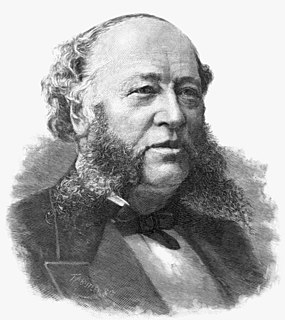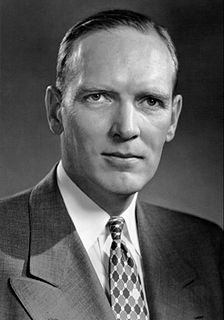
William George Besler (March 30, 1865 - May 20, 1942) was president of the Central Railroad of New Jersey. [1] [2]

William George Besler (March 30, 1865 - May 20, 1942) was president of the Central Railroad of New Jersey. [1] [2]
He was born in Galesburg, Illinois, to John Daniel Besler and Anna Chapin. He graduated from Massachusetts Institute of Technology in 1880 with a degree in Engineering.
He married Effie B Lewis on 10 October 1888. They had three children: Helen Anajane Besler (1892-1989), George Daniel Besler (1902-1995), and William John Besler (1904-1985). [3] His sons, George and William, went on to make the world's first steam powered aeroplane at Oakland, California, on 12 April 1933.
Bessler started working for the Chicago, Burlington and Quincy Railroad as a trainmaster's clerk in Chicago. He rose through the ranks to become division superintendent of the company's St Louis Division in 1893. In 1900 he moved to Pittsburgh and Reading, becoming their general superintendent by 1903. The Central Railroad of New Jersey employed him in 1903 as general manager. By 1926 he had become chairman of the board.
Besler was an active member of the American Railway Association and became its president when it was renamed the Association of American Railroads. He was also a director of Gamewell Company, Rockwood Sprinkler Company, Holtzer-Cabot Electric Company, Eagle Signal Corporation, New York Transfer Company, National Railway Publication Company, Lehigh and Hudson River Railway Company, and Davenport Locomotive Works. Besler was also Director and Vice-President of the New Jersey Chamber of Commerce. [4]
He died on May 20, 1942. [5]

William Henry "Billy" Vanderbilt was an American businessman and philanthropist. He was the eldest son of Commodore Cornelius Vanderbilt, an heir to his fortune and a prominent member of the Vanderbilt family. Vanderbilt became the richest American after he took over his father's fortune in 1877 until his own death in 1885, passing on a substantial part of the fortune to his wife and children, particularly to his sons Cornelius II and William. He inherited nearly $100 million from his father. The fortune had doubled when he died less than nine years later.

The Northern Pacific Railway was a transcontinental railroad that operated across the northern tier of the western United States, from Minnesota to the Pacific Northwest. It was approved by Congress in 1864 and given nearly forty million acres of land grants, which it used to raise money in Europe for construction.

Abram Stevens Hewitt was an American teacher, lawyer, an iron manufacturer, chairman of the Democratic National Committee from 1876 to 1877, U.S. Congressman, and a reforming mayor of New York City. He was the son-in-law of Peter Cooper (1791–1883), an industrialist, inventor and philanthropist. He is best known for his work with the Cooper Union, which he aided Peter Cooper in founding in 1859, and for planning the financing and construction of the first subway line of the New York City Subway, for which he is considered the "Father of the New York City Subway System".

Lucius E. Johnson was a president of the Norfolk and Western Railway from September 30, 1903, until the mid teens, when he was named chairman of the board, a position he held until his retirement on January 1, 1921. For five months in 1918, he served as Chairman of its Board. He lived in Roanoke, Virginia, United States.

John Francis Nash was an American railroad executive. He served as president of the Pittsburgh and Lake Erie Railroad and later the Lehigh Valley Railroad.

John Stewart Kennedy was a Scottish-born American businessman, financier and philanthropist. He was a member of the Jekyll Island Club on Jekyll Island, Georgia along with J.P. Morgan and William Rockefeller among others.

Daniel Willard was an American railroad executive best known as the president of the Baltimore and Ohio Railroad (B&O) from 1910 to 1941. He served on or headed several government railroad commissions in World War I and appeared on the cover of Time magazine in 1932 due to his part in negotiating wage cuts in the Great Depression.

Robert Harris was a civil engineer and railroad executive who became president of the Chicago, Burlington and Quincy Railroad and Northern Pacific Railway.
Louis Wilson Menk was an American railway worker and executive. He served as the last president of Northern Pacific Railway 1966-1970, before the railroad was merged into Burlington Northern Railroad, and the first president and second chairman of Burlington Northern. Menk was also selected as Modern RailroadsMan of the Year for 1967, an award that has continued annually and is now known as Railroader of the Year.

John Marshall Budd (1907-1979) was chairman and chief executive officer of Burlington Northern Railroad from 1970 to 1971, chairman from 1971 to 1972, and a director from 1970 to 1977.

Charles Elliott Perkins was an American businessman and president of the Chicago, Burlington and Quincy Railroad. He was so well respected that historian Richard Overton wrote, "From the time that Charles Elliott Perkins became vice president of the Chicago, Burlington and Quincy [1876] ... until he resigned as president in 1901, he was the Burlington."
Gale B. Aydelott, better known as "Gus Aydelott," was an American railroad president. He headed the Denver and Rio Grande Western Railroad for nearly three decades.

Marvin Hughitt was an American railroad tycoon from New York. Interested in telegraphy at a young age, Hughitt quickly mastered the trade and moved to Chicago, Illinois to work. He came to the attention of the St. Louis, Alton and Chicago Railroad, who hired him to coordinate trains. This began a long career in rail, culminating in the presidency of the Chicago and Northwestern Railroad (1887–1910). He also served as president of two of its subsidiary lines, the Fremont, Elkhorn and Missouri Valley and the Chicago, St. Paul, Minneapolis and Omaha.
The 1929 New Year Honours were appointments by King George V to various orders and honours to reward and highlight good works by citizens of the United Kingdom and British Empire. They were announced on 26 February 1929. The announcement of the list was delayed two months by the health of the king, who fell ill with septicaemia in November 1928. There were no recipients of the Royal Victorian Order and only two recipients in the military division of the Order of the British Empire.

Fred A. Howland was a Vermont attorney, businessman, and Republican politician. He served as Secretary of State of Vermont and president of the National Life Insurance Company.
James Sears McCulloh was an American business executive who served as president and chairman of the New York Telephone Company.
Burns Durbin Caldwell was president of the Wells Fargo Express Company and chairman of the board the American Railway Express Company.
Henry Brockholst Ledyard Jr. was an American soldier and businessman who served as president of the Michigan Central Railroad and the Union Trust Company.
William George Besler, chairman of the board of the Central Railroad of New Jersey, and Mrs. Besler of this city have announced the engagement of Mrs. ...
The Inventors are George D. Besler, 31, and his brother William J., 29, sons of Board Chairman George William Besler [sic] of Central Railroad of New Jersey
William George Besler, chairman of the board of the Central Railroad of New Jersey since 1926, died at his home here this afternoon after an illness of ...